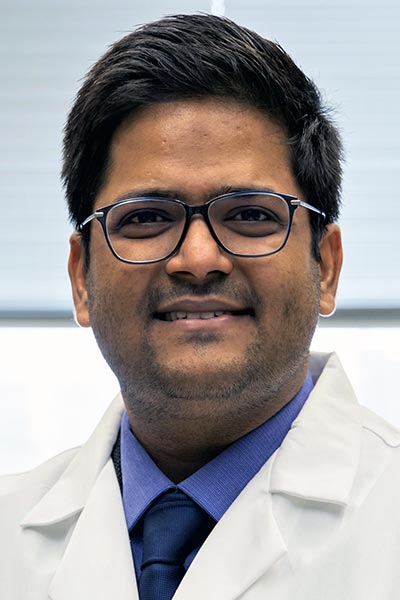2024 NextGen Stars Showcase: Abhijit Parolia, MS, PhD
The American Association for Cancer Research Annual Meeting 2024 will mark the 10th anniversary of the AACR’s NextGen Stars Program by welcoming in a class of 10 outstanding early-career scientists. Since 2014, the program has supported the professional advancement of graduate students, postdocs, and assistant professors by providing highly visible opportunities to present scientific findings at the Annual Meeting.
Hear from one of the newest NextGen Stars in their own words, below, and click here to read Q&As with other members of the NextGen Stars Class of 2024.

Abhijit Parolia, MS, PhD
AACR NextGen Stars Class of 2024
Assistant Professor
University of Michigan, Ann Arbor, Michigan
Abstract Presentation:
NG09 – NSD2 is a druggable subunit of the AR neo-enhanceosome in prostate cancer
Session Details:
AOS07 – Androgen Receptor as a Pro-Differentiation and Oncogenic Transcription Factor in Prostate Cancer
Wednesday, April 10, 10:15 – 11:45 a.m. PT
Room 15, Mezzanine Level, Convention Center
What is the subject of your research?
Androgen receptor (AR) is a ligand-responsive transcription factor that binds to enhancer elements and drives the maturation of intermediate prostate cells into non-proliferating luminal epithelia. However, in tumors originating from these cells, AR activity is hijacked to drive hyper-proliferative and malignant phenotypes. Here, we show that the tumor-specific enhancer circuitry of AR is critically reliant on the activity of NSD2—an H3K36me2 methyltransferase. NSD2 expression is abnormally gained in malignant cells, wherein its inhibition impairs AR trans-activation potential through off-loading from over 40,000 genomic sites. NSD2-dependent sites harbor a chimeric AR-half motif juxtaposed to FOXA1, which is exclusively detected within tumor-specific AR binding sites in patient tissues. Notably, NSD2 inactivation engendered increased dependency on NSD1, and a novel NSD1/2 PROTAC degrader showed preferential cytotoxicity in AR/FOXA1-driven cancers. Altogether, we identify NSD2 as a targetable AR cofactor in prostate cancer, positioning NSD1/2 paralogs as novel targets for therapy.
What sparked your interest in this area of research, and why is it important?
While de-differentiation is a hallmark of many tumors, prostate cancer oddly remains reliant on a transcription factor that drives terminal differentiation in the normal precursor cell. This counterintuitive addiction of prostate cancer cells to a differentiation factor remains mechanistically unexplained and, thus, is an exciting area of research. Understanding the molecular basis of how the lineage-defining androgen/AR axis is hijacked and reprogrammed by driver oncogenes during prostate tumorigenesis will establish a new paradigm of “lineage addiction” in human cancers, as well as uncover new targetable dependencies for prostate cancer therapy.
What (or who) inspired you to apply for the NextGen Stars program?
My primary motivation for applying to the NextGen Stars program was to share my current research and promote my newly established cancer laboratory at the University of Michigan Medical School.
What are you looking forward to as a member of the NextGen Stars?
I look forward to meeting my fellow awardees and learning more about their research. Being part of this cohort not only provides the opportunity to broaden one’s professional network but also facilitates connections with emerging thought leaders in closely related research domains. These interactions may spark inspiration and pave the way for potential future collaborations.
More from the AACR Annual Meeting 2025
View a photo gallery of scenes from Chicago, continue the conversation on social media using the hashtag #AACR25, and read more coverage in AACR Annual Meeting News.

